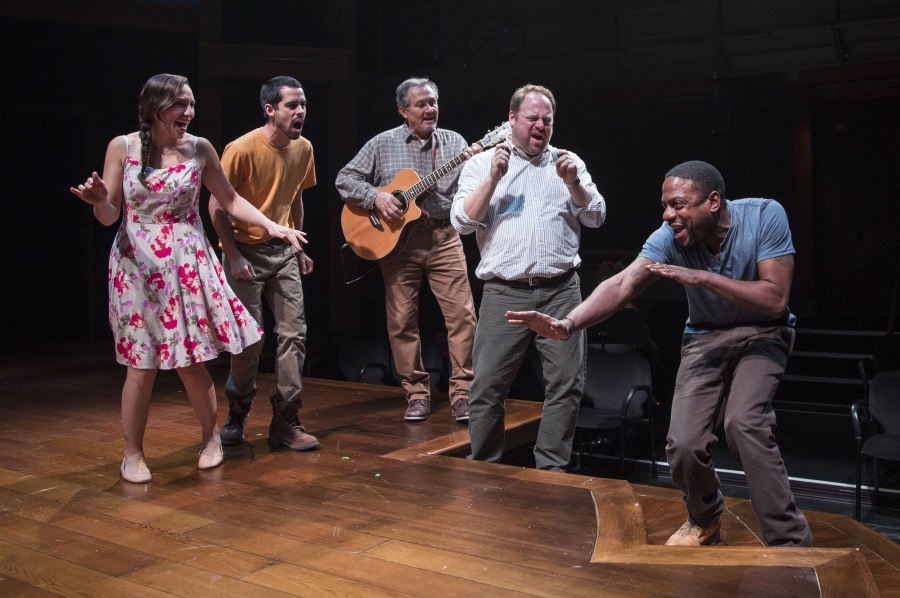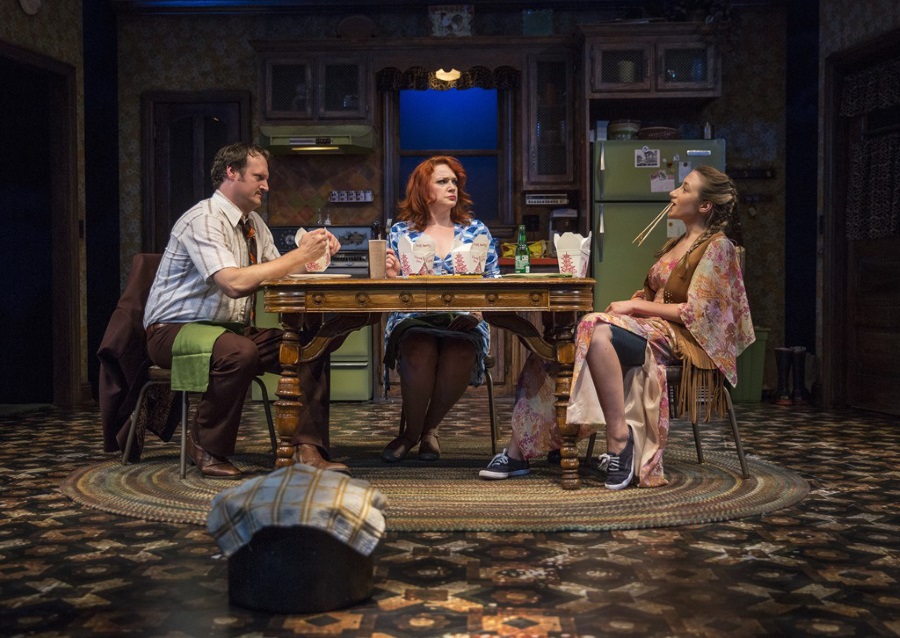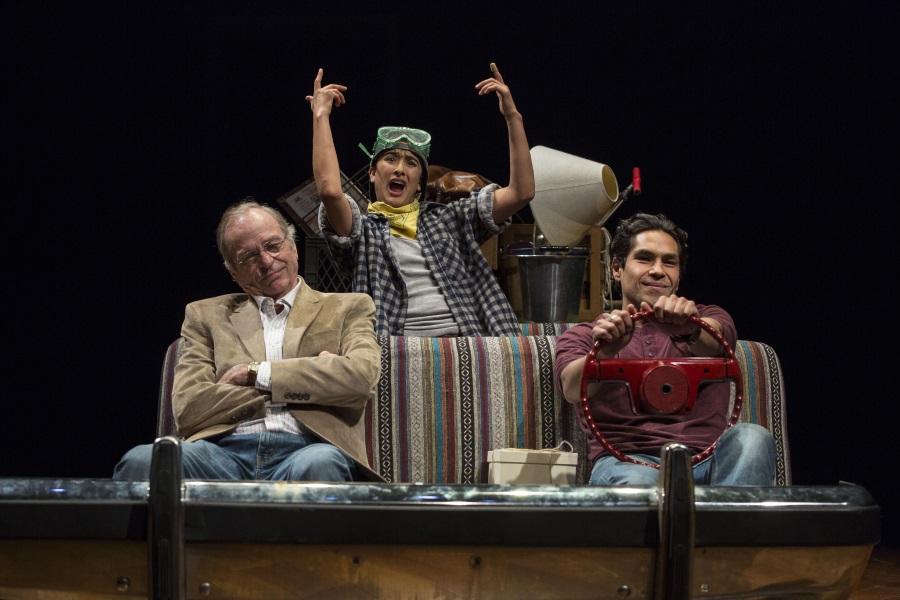CHICAGO: The New Stages festival is underway at the Goodman Theatre, and audiences can get a look new works in varying stages of the development process—all for free. The repertory of three developmental works began on Oct. 28 with staggered openings, and will continue through Nov. 15, culminating in a professionals weekend with a roundup of the plays and four additional readings to make a total of seven new plays.
The festival, which launched in 2004, is a way for the Goodman to see prospective plays that may be considered for future seasons. Two of the plays at the Goodman’s Owen Theatre this year—Feathers and Teeth by Charise Castro Smith and Carlyle by Thomas Bradshaw—were workshopped with New Stages last year. José Rivera’s Another Word for Beauty started as a reading at New Stages in 2013, and Lynn Nottage’s Pulitzer-Prize-winning Ruined was also part of the event in 2007.
Tanya Palmer, the director of new play development at the theatre, describes the developmental work in the festival as a “sketch of a full production.” Palmer says the plays have all the elements of a full-production—sets, costumes, memorized lines—but the developmental works are not fully-realized. “They still have the flexibility and can keep exploring,” Palmer adds.
Each play, selected through a process of both submissions and commissions, has two-week rehearsal period, and the Goodman supplies the space, a full design team, and the eager audience.
The festival allows playwrights to see their work onstage, sometimes for the first time. The playwrights receive feedback, and get a sense of what work is left to be done. “The writer can continue to write, and they have an opportunity to see it five or six times in front of an audience,” says Palmer.
First on the docket is Octavio Solis’s Mother Road, inspired by John Steinbeck’s The Grapes of Wrath. The play reimagines the novel’s character Tom Joad as a migrant worker, and the play journeys backward from California to Oklahoma. The play made its way to the Goodman from the Latino/a Theatre Commons‘s 2015 Carnaval. “[New Stages] was the next step that he and his director Juliette Carrillo had been looking for,” adds Palmer. The team wanted time to play with actors and explore the role of the chorus in the play.

Also in the lineup is Charles Smith’s Objects in the Mirror, about the life of a Liberian actor who acted in one of Smith’s plays in Australia. The play revolves around the actor, Shedrick, and his journey from refugee camps in Liberia to the land down under.
Lauren Yee’s King of the Yees is about her father, a driving force in the Chinese American men’s club the Yee Family Association. When her father goes missing, Lauren searches in San Francisco’s Chinatown and confronts cross-cultural barriers and finds what it means to be a Yee. The Goodman commissioned the play, and has held an in-house reading prior to the festival. “The play is actually pretty far along, but she wanted was to see the play in three dimensions with some of the design elements,” says Palmer.
Four readings will be presented in tandem with the three plays during the final weekend of the festival. The readings will be Dael Orlandersmith’s Lady in Denmark, Jordan Harrison’s The Amateurs, Martín Zimmerman’s On the Exhale, and Goodman artistic associate Rebecca Gilman’s Rödvinsvänster (Red-Wine Leftists): 1977. The weekend also includes a panel called Staging Epics (Nov. 13), in which playwrights and directors will talk about creating and mounting seemingly unstageable plays.

Part of the festival’s mission is to provide opportunities to a diverse group of playwrights and actors. The Goodman tries to cast the festival entirely out of Chicago, working closely with the playwrights and the directors to try to realize the work with the actors. “We are fortunate that we have such a great acting community here in Chicago,” says Palmer.
And not every play’s future is at the Goodman. The company invites theatre leaders to share in the new play wealth for professionals weekend. “Realistically, we are not going to be able to produce every play that we include in New Stages every year, but we want to make sure that this work has a continued life,” explains Palmer.


